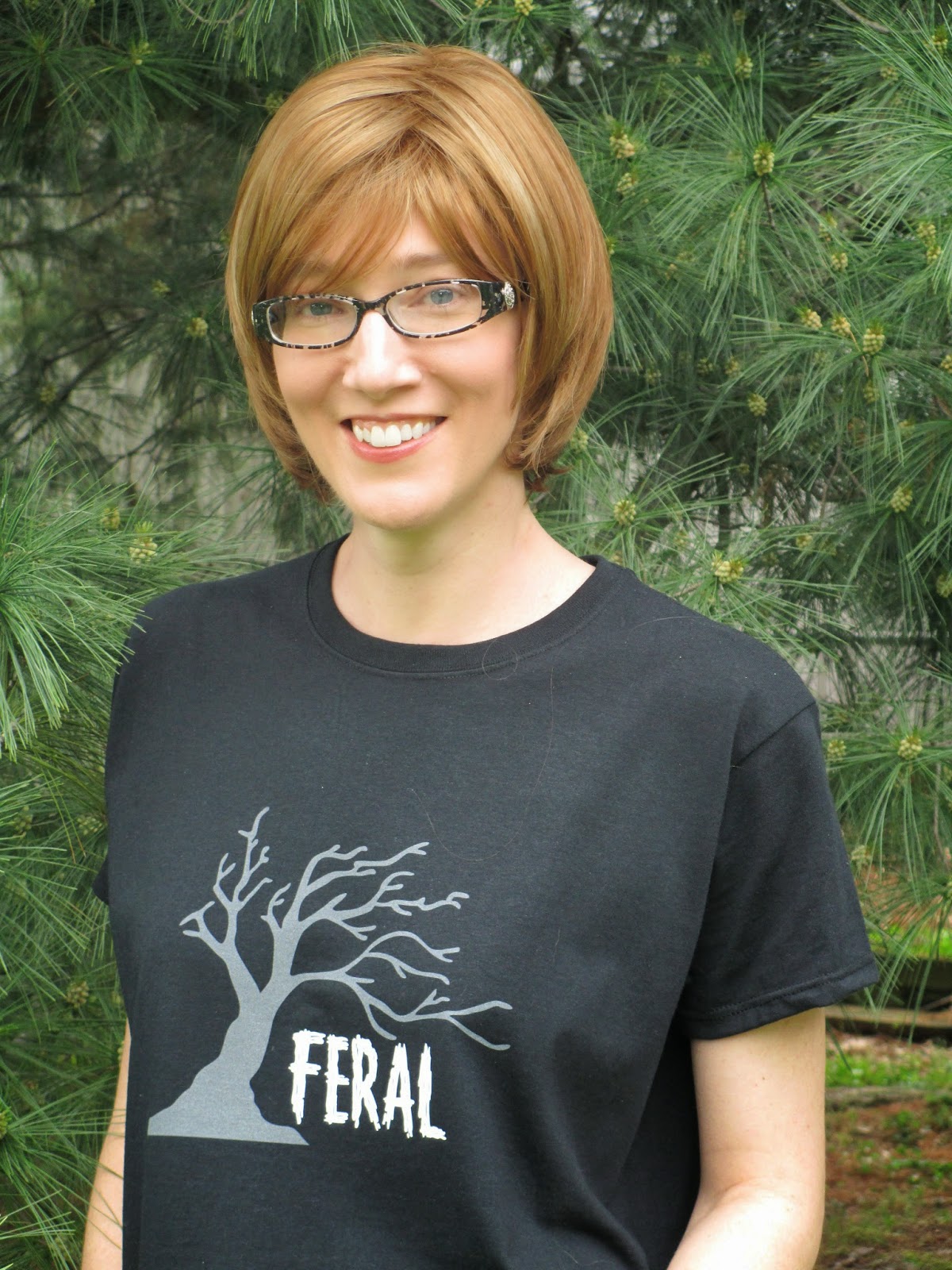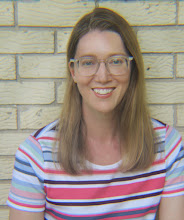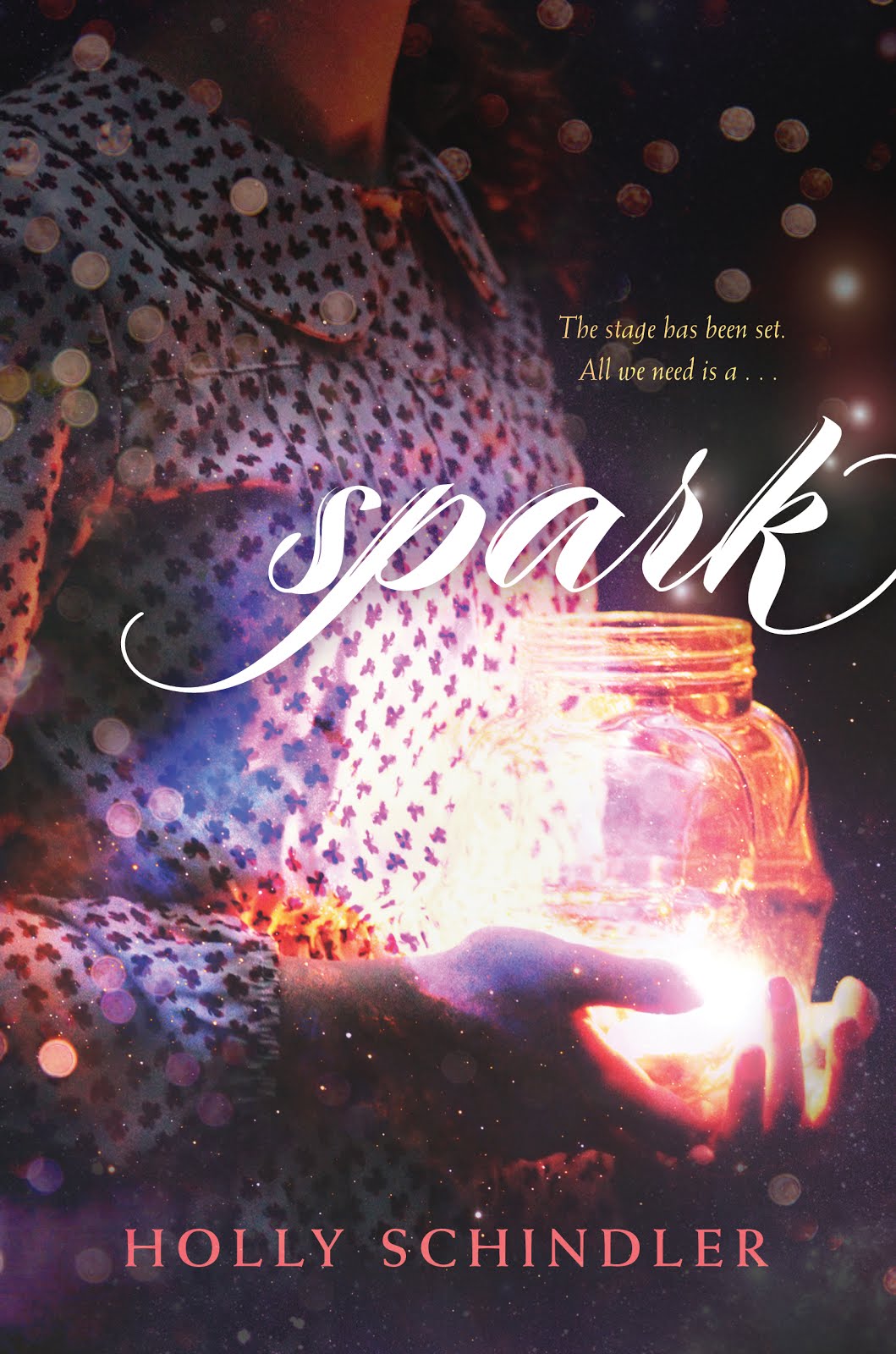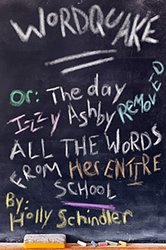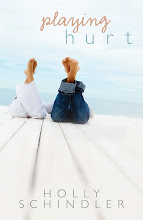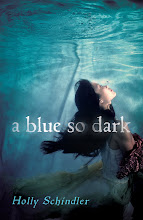Also, my latest post for Writer's Digest went live yesterday; leave a comment at WD for a chance to win one of my Cybils-nominated books.
Friday, October 31, 2014
WEEK'S HIGHLIGHTS: CYBILS 2014 + WRITER'S DIGEST
Also, my latest post for Writer's Digest went live yesterday; leave a comment at WD for a chance to win one of my Cybils-nominated books.
Wednesday, October 29, 2014
COVER REVEAL: THE SUMMER AFTER YOU & ME - JENNIFER SALVATO DOKTORSKI
I'm delighted to participate in Jennifer Salvato Doktorski's cover reveal for THE SUMMER AFTER YOU & ME. Love the title, and MAN, is that a grab-me cover! Gotta. Getta. Copy.
The Summer After
You and Me
Release
date: Spring 2015, Sourcebooks Fire
By Jennifer Salvato Doktorski
On
the day before Superstorm Sandy crashes into the New Jersey shore, local girl Lucy
Giordano spends an intense morning with the summer boy next door, Connor
Malloy. Lucy believes it’s the start of something special between her and the
boy she’s been watching for years from behind sunglasses. But when Connor
returns home and doesn’t call like he promised, Lucy realizes she made a big
mistake—one she vows to keep a big secret. A smart girl like Lucy knew better
than to cross a line that big with a player like that. She accepts that her
love life is just one more thing that took a big hit from the devastating
hurricane and moves on.
Now it’s the first summer after the
storm, and the boy Lucy spent all winter trying to forget returns to Seaside
Park with a new girlfriend, Bryn. Lucy tells herself it doesn’t matter, she’s
with Andrew Clark now, her best friend who recently became more. Forget love
and destiny, Lucy is more determined than ever to think with her mind, not her
heart, and spend the summer hanging with her Seaside friends, working at
Breakwater Burrito, and focusing on her goal of becoming a marine zoologist. But
Lucy’s grand plans unravel before the first tan lines appear. When Lucy
discovers her twin brother, Liam, and their parents have secrets of their own,
and her rock-solid boyfriend is not-so-solid after all, she struggles to
rebuild a life with the people she cares the most about in the place she loves.
THE
SUMMER AFTER YOU AND ME on Goodreads:
Where
to find Jen Doktorski:
Twitter:
@jdoktorski
Facebook:
https://www.facebook.com/jendoktorski
Monday, October 27, 2014
OFF THE BEATEN PATH #HBT14
This year, in anticipation of Halloween and in celebration of FERAL, my first psychological thriller, being on the shelves, I'm participating in the Halloween Blog Trail. I'm on the "Off the Beaten Path" Team.
At the end of the post, you'll find the link to the next stop on the blog crawl; at the end of the crawl, you'll be able to participate in a quiz to win books (including a signed copy of FERAL):
About FERAL:
The Lovely Bones meets Black Swan in this haunting psychological
thriller with twists and turns that will make you question everything you think
you know.
It’s too late for you. You’re dead. Those words continue to haunt Claire Cain months after she barely survived a brutal beating in Chicago. So when her father is offered a job in another state, Claire is hopeful that getting out will offer her a way to start anew.
But when she arrives in Peculiar, Missouri, Claire feels an overwhelming sense of danger, and her fears are confirmed when she discovers the body of a popular high school student in the icy woods behind the school, surrounded by the town’s feral cats. While everyone is quick to say it was an accident, Claire knows there’s more to it, and vows to learn the truth about what happened.
But the closer she gets to uncovering the mystery, the closer she also gets to realizing a frightening reality about herself and the damage she truly sustained in that Chicago alley….
Holly Schindler’s gripping story is filled with heart-stopping twists and turns that will keep readers guessing until the very last page.
It’s too late for you. You’re dead. Those words continue to haunt Claire Cain months after she barely survived a brutal beating in Chicago. So when her father is offered a job in another state, Claire is hopeful that getting out will offer her a way to start anew.
But when she arrives in Peculiar, Missouri, Claire feels an overwhelming sense of danger, and her fears are confirmed when she discovers the body of a popular high school student in the icy woods behind the school, surrounded by the town’s feral cats. While everyone is quick to say it was an accident, Claire knows there’s more to it, and vows to learn the truth about what happened.
But the closer she gets to uncovering the mystery, the closer she also gets to realizing a frightening reality about herself and the damage she truly sustained in that Chicago alley….
Holly Schindler’s gripping story is filled with heart-stopping twists and turns that will keep readers guessing until the very last page.
~
If your MC went trick
or treating, what would they dress up as and why?
Her old self. What I
mean: Claire’s been the victim of a horrible gang beating. She endured that beating because she stood up
for her friend, who was being wrongfully accused of something she didn’t
do. (Claire ratted out a gang member;
the gang retaliated.) Claire isn’t the
same physically, and though she’s tried to convince herself she’s moved on, she
hasn’t. Not by a long shot. She’s struggling with the resentment she
feels for her friend. She struggles with
the way she looks…
Some Halloween costumes are gruesome and ugly; others are
kind of wish-fulfillment (I’m thinking of the doctor or princess
costumes). If Claire could be anything
for a day, I think it’d be her old, pre-beating self. The Claire who wasn’t scarred, physically or
emotionally.
If your villain went
trick or treating, what would they dress up as?
My villain is wearing quite the mask, actually. (The villain I’m referring to is Serena’s
killer.) He’s got more than just one
secret—those secrets keep the reader guessing as the book progresses…In many
ways, I think he’s already dressed up, wearing a costume…
What scares the pants
out of you?
Heights. I’ve got
really awful vision—20/700. I’ve worn
glasses or contacts since I was about nine, but I’ve often said I don’t think I
ever had 20/20 vision—I just think I finally got to the point that the
blackboard was officially too fuzzy to make out my daily handwriting
assignment.
I’ve always thought my hatred of heights stems from my
rotten eyesight…I can be standing on the ground near a tall building and still
get dizzy!
If you were stranded
on a deserted island or haunted house, what number are you to die and how?
Okay, now, let’s be clear: I can’t be in a number to die if
I’m on a truly “deserted” island.
Somebody else is there. So this
is either one of those idyllic situations where I just happen to be stranded
with some Hollywood heartthrob or even one of my favorite “book boyfriends”
come to life. OR: I’m stranded with some
island monster…But with 20/700 vision, I could take my glasses off, and the
island monster could be Clooney’s double, for all I’d know.
…But really, I’m a sixth-generation Missourian who likes to
believe she inherited the “tough stuff” gene.
Of course I’d like to believe I’d be the last man standing. (But I’ve completely given away my weak spot…snatching
my glasses would leave me open to attack!)
Would you rather be
covered in slime or covered in blood?
I’m a child of the ‘80s, and I’m pretty sure we all dreamed
about being slimed on YOU CAN’T DO THAT ON TELEVISION.
What magical /
supernatural creature do you secretly want to be?
Wouldn’t invisibility be the best power ever? I’ve always said that I’m grateful I’m an
author during an era when I get to be a fly on the wall, listening in on the
discussions regarding my work. It’s not
the easiest thing in the world to read your own blog reviews, but it’s so
incredibly enlightening. I honestly
can’t imagine not doing it. I feel like
listening to my readers is part of the gig—and it’s best to listen in when I am
invisible, because that way, everyone’s being completely, brutally honest. Can you imagine what a powerful tool that
would be, to be able to listen in on everyone in your personal life as well?
What is your favorite
sentence / paragraph from your novel?
“What damage could a dream do anyone who wasn’t a character in
a Nightmare on Elm Street installment?”
The next stop on the crawl is Brit McGinnis (I'm heading over there myself...)
Monday, October 20, 2014
DEAR BLOGGERS: THANK YOU FOR MY 1-STAR REVIEWS
After the whole Hale / Harris Twitter fiasco, I wanted to take a moment to thank bloggers for my own 1-star reviews.
I'm honestly not being sarcastic. I mean it: thank you.
I've said it before, but it's true--I read all my reviews. The good, the mixed, the straight-up negative. I think blog reviews are every bit as important as trade reviews. (Editors and publishing insiders offer only one viewpoint. Readers offer others.) I comb through blog reviews seeking patterns: what readers thought worked, what they thought missed the mark. FERAL, the YA psychological thriller that released last August, has been utterly eye-opening. More so than any other book I've published. A few of the bigger lessons I've learned so far:
* AS A GENRE, THE PSYCHOLOGICAL THRILLER IS CHANGING
I've already blogged about this one a bit, but it's true: FERAL hits just about every item in a checklist for the elements that should be in a classic psychological thriller. Hitchcockian pace? Attention to a character's inner workings? Water as a metaphor for the subconscious? Check, check, check. (Even the FERAL cats are a nod to Hitchcock.) Do modern readers see the term "psychological thriller" and believe that the emphasis should be on "psychological"? Nope. The emphasis, for modern readers, should be on "thriller." Even psychological thrillers should be action-oriented (or move at a faster clip). Point taken.
* THE IMPORTANCE OF A LIKABLE NARRATOR
I was introduced to this lesson with PLAYING HURT; some readers thought Chelsea was a selfish, unlikable character when she cheated on her boyfriend. I heard it again with a few FERAL reviews. I have to admit, I consistently struggle with this one. I believe part of my job, as an author, is to present a character's unvarnished truth. A novel is a unique experience because we're actually inside another person's head; that doesn't happen in any form of entertainment--not TV, not a movie, not a play...In a book, we're not just watching a character navigate through a sticky situation; we're actually experiencing the sticky situation, because we're looking through a character's eyes. I think that means I have to present my characters warts and all. I have to show all the things they keep inside, the things that they wouldn't want the rest of the world to see. That can, at times, make them less than admirable (as it does when Claire reveals in FERAL that she blames her best friend, at least in part, for her attack). I am, though, currently working on an NA manuscript, and this lesson, more than any other, is helping with my revisions.
* READERS OF GENRE FICTION ARE MORE DEMANDING THAN READERS OF LITERARY FICTION
When I was in college, "genre" was a bad word; it was lesser fiction. That's baloney. Readers of genre fiction know the ins and outs of their preferred genre (mystery, romance, etc.), and expect authors to deliver. Nothing is more challenging for an author than finding a way to be original while meeting the established criteria for a specific genre. And I'm definitely up for that challenge...
I've long said that I would hate, hate, HATE it if A BLUE SO DARK, my first published book, turned out to be my best book. I want to get better with each book I write. But I can't get better in a vacuum. I have to have feedback in order to do that. No one provides more honest feedback than book bloggers. I'm grateful for it, I welcome it, I'm learning from it.
Thank, guys. Seriously. Thanks.
I'm honestly not being sarcastic. I mean it: thank you.
I've said it before, but it's true--I read all my reviews. The good, the mixed, the straight-up negative. I think blog reviews are every bit as important as trade reviews. (Editors and publishing insiders offer only one viewpoint. Readers offer others.) I comb through blog reviews seeking patterns: what readers thought worked, what they thought missed the mark. FERAL, the YA psychological thriller that released last August, has been utterly eye-opening. More so than any other book I've published. A few of the bigger lessons I've learned so far:
* AS A GENRE, THE PSYCHOLOGICAL THRILLER IS CHANGING
I've already blogged about this one a bit, but it's true: FERAL hits just about every item in a checklist for the elements that should be in a classic psychological thriller. Hitchcockian pace? Attention to a character's inner workings? Water as a metaphor for the subconscious? Check, check, check. (Even the FERAL cats are a nod to Hitchcock.) Do modern readers see the term "psychological thriller" and believe that the emphasis should be on "psychological"? Nope. The emphasis, for modern readers, should be on "thriller." Even psychological thrillers should be action-oriented (or move at a faster clip). Point taken.
* THE IMPORTANCE OF A LIKABLE NARRATOR
I was introduced to this lesson with PLAYING HURT; some readers thought Chelsea was a selfish, unlikable character when she cheated on her boyfriend. I heard it again with a few FERAL reviews. I have to admit, I consistently struggle with this one. I believe part of my job, as an author, is to present a character's unvarnished truth. A novel is a unique experience because we're actually inside another person's head; that doesn't happen in any form of entertainment--not TV, not a movie, not a play...In a book, we're not just watching a character navigate through a sticky situation; we're actually experiencing the sticky situation, because we're looking through a character's eyes. I think that means I have to present my characters warts and all. I have to show all the things they keep inside, the things that they wouldn't want the rest of the world to see. That can, at times, make them less than admirable (as it does when Claire reveals in FERAL that she blames her best friend, at least in part, for her attack). I am, though, currently working on an NA manuscript, and this lesson, more than any other, is helping with my revisions.
* READERS OF GENRE FICTION ARE MORE DEMANDING THAN READERS OF LITERARY FICTION
When I was in college, "genre" was a bad word; it was lesser fiction. That's baloney. Readers of genre fiction know the ins and outs of their preferred genre (mystery, romance, etc.), and expect authors to deliver. Nothing is more challenging for an author than finding a way to be original while meeting the established criteria for a specific genre. And I'm definitely up for that challenge...
I've long said that I would hate, hate, HATE it if A BLUE SO DARK, my first published book, turned out to be my best book. I want to get better with each book I write. But I can't get better in a vacuum. I have to have feedback in order to do that. No one provides more honest feedback than book bloggers. I'm grateful for it, I welcome it, I'm learning from it.
Thank, guys. Seriously. Thanks.
Wednesday, October 15, 2014
BOOKLIST REVIEW FOR FERAL
Months after a brutally described attack, provoked by her student newspaper exposé of a Chicago drugring, Claire is still suffering the physical and psychological aftereffects of the beating. Retreating to Peculiar, Missouri, for her father's sabbatical, Claire hopes the slower pace and strangers' lack of awareness of her injuries will give her a fresh start. However, the night they arrive, Serena, a female reporter from the school newspaper, dies in conditions that Claire finds eerily similar to her own near death experience. Peculiar quickly lives up to its name, as Claire can feel Serena reaching out to her. Does she want Claire's help in solving the mystery of her death? Or is her spirit trying to possess Claire's body, as it seems to have taken up residence in a local feral cat? A heavily gloomy feel pervades this novel that shifts through phases of fantasy, mystery, psychological thriller, and thoughtful realistic fiction dealing with PTSD. Readers captivated by Claire's impassioned spiral out of control will be soothed by the tentatively positive resolution.
Tuesday, October 14, 2014
BECOMING A HYBRID AUTHOR
I'm excited to announce that I'm becoming a hybrid author: one who publishes both traditionally and independently. The video below goes into some of the reasons behind this move, and provides a glimpse into which genre I'll be tackling in my first indie-published work:
Monday, October 13, 2014
POSITIVE READING CHALLENGE
I've loved the extensive blog tours I've done for FERAL, but this post, which originally went live last week at Adventures in YA Publishing, goes beyond a mere tour post. It highlights the most useful tip I can give any author seeking their first "yes" from the publishing world. Read on, and gear up for my positive reading challenge:
I’m not going to lie—I don’t think my writing degree did much for me, in terms of preparing me to become a professional writer. That’s not to discourage anyone currently enrolled in a writing program. I’m only speaking specifically of the writing program I attended in the late ‘90s / early ‘00s. In fact, many of the “truths” that were taught in my creative writing courses did me a disservice—I had to spend a few years unlearning the lessons that had filled my classrooms.
The one lesson that I’m grateful for—the one lesson that actually did help me—came from a literature professor, rather than a writing professor. In fact, he was by far my favorite instructor in the entire department.
I met this particular professor when I signed up for his course in Literary Criticism. The course was a real struggle for me, in the beginning—so much so, I wound up seeking him out after class to try to gain some perspective, some insight into how to better attack the subject matter.
The advice this professor gave me was to forget “good.” It wasn’t my job to determine whether or not a book, poem, story, etc. was worth reading. Other people with far better credentials had, in fact, already determined the work was “good.” It had made its way into the literary canon. It was a classic. My job, as a literature student, was to figure out why. What separated this work from its contemporaries? Why did it survive while others produced in the same vein were forgotten?
When I graduated and was up to my eyeballs in rejections, I returned to that lesson. I checked out piles and piles of contemporary juvenile literature from my local library and attacked each book in the same way I’d once attacked the works I’d read for my lit prof. I went at it thinking, “Okay, somebody—an agent, an editor, a publishing house—has already decided this book is good. Why? What does this book have that made it a work to be acquired? What are this author’s strengths?”
That lesson, more than any other, helped me move toward publication. And I’d like to encourage anyone in pursuit of publication to do the same. For one year, I challenge you to find something good in each new book you read.
It’s easy, when you’re covered in rejection, to fall into a pattern of negative thinking. That negative thinking could be projected inward (“I’m no good. I’ll never be in the company of published authors. I don’t have anything new to offer. Who would read my work when so many other great authors are already out there?”) Or, the negative thinking could be projected outward (“Published books are crap. These published authors are no good. My work is better than this. The reason my work isn’t being accepted is because editors only want crap.”)
Another negative thought pre-published authors fall into is the idea that a rejection means that the editor or agent is telling you that your work isn’t of high enough quality. That’s not it at all. Yet again, I encourage you to forget “good.” A rejection isn’t an editor telling you that you’re not good enough. In fact, I once worked with an editor who told me that she picked books that she felt she could edit in a way no one else could…she picked books she felt she could make a unique kind of editorial thumbprint on. She said she did pass on many books that were well done—it was about finding the right match.
For one year, then, I encourage any would-be authors to ditch the negative thinking—which can really affect your writing, hamper it. Let go of the idea that a rejection is a way to tell you that you’re not good enough. Let go of the idea that you don’t measure up. And while you should always, always, always have faith and pride in your abilities, let go of the notion that the published books you check out are somehow inferior. Decide, every time you pick up a book, that you’re going to learn from it.
For one year, forget good. Look at each read objectively and ask yourself, “Why did this one make it?” You may decide that it was because of the concept, or because of the writer’s ability to handle a plot twist, or because of the author’s voice. You may see value in their character development or humor. Find some positive reason for the book being acquired.
Then challenge yourself. Figure out how to incorporate other authors’ admirable qualities into your work in your own way. I contend it’s far more useful to try to emulate something positive than it is to avoid something negative.
I would bet that by the end of the year, you will have made progress in some way. You’ll have graduated from form rejections to personalized rejections—or maybe even signed with an agent. I would, in fact, love to hear your own stories of how this “Positive Reading Challenge” helped your own publication pursuit. Take the challenge, and at the end of the year, shoot me a message. (I can always be reached through my website or social media). I’d love to know how it impacted you.
I’m grateful every day for my prof’s lesson—it helped me in ways I never could have anticipated, back when I was a literature student trying to navigate through his class. It actually turned out to be the best professional advice I ever received. I’m betting that it’ll help you, too. I can’t wait to hear how.
Holly Schindler's Positive Reading Challenge
I’m not going to lie—I don’t think my writing degree did much for me, in terms of preparing me to become a professional writer. That’s not to discourage anyone currently enrolled in a writing program. I’m only speaking specifically of the writing program I attended in the late ‘90s / early ‘00s. In fact, many of the “truths” that were taught in my creative writing courses did me a disservice—I had to spend a few years unlearning the lessons that had filled my classrooms.
The one lesson that I’m grateful for—the one lesson that actually did help me—came from a literature professor, rather than a writing professor. In fact, he was by far my favorite instructor in the entire department.
I met this particular professor when I signed up for his course in Literary Criticism. The course was a real struggle for me, in the beginning—so much so, I wound up seeking him out after class to try to gain some perspective, some insight into how to better attack the subject matter.
The advice this professor gave me was to forget “good.” It wasn’t my job to determine whether or not a book, poem, story, etc. was worth reading. Other people with far better credentials had, in fact, already determined the work was “good.” It had made its way into the literary canon. It was a classic. My job, as a literature student, was to figure out why. What separated this work from its contemporaries? Why did it survive while others produced in the same vein were forgotten?
When I graduated and was up to my eyeballs in rejections, I returned to that lesson. I checked out piles and piles of contemporary juvenile literature from my local library and attacked each book in the same way I’d once attacked the works I’d read for my lit prof. I went at it thinking, “Okay, somebody—an agent, an editor, a publishing house—has already decided this book is good. Why? What does this book have that made it a work to be acquired? What are this author’s strengths?”
That lesson, more than any other, helped me move toward publication. And I’d like to encourage anyone in pursuit of publication to do the same. For one year, I challenge you to find something good in each new book you read.
It’s easy, when you’re covered in rejection, to fall into a pattern of negative thinking. That negative thinking could be projected inward (“I’m no good. I’ll never be in the company of published authors. I don’t have anything new to offer. Who would read my work when so many other great authors are already out there?”) Or, the negative thinking could be projected outward (“Published books are crap. These published authors are no good. My work is better than this. The reason my work isn’t being accepted is because editors only want crap.”)
Another negative thought pre-published authors fall into is the idea that a rejection means that the editor or agent is telling you that your work isn’t of high enough quality. That’s not it at all. Yet again, I encourage you to forget “good.” A rejection isn’t an editor telling you that you’re not good enough. In fact, I once worked with an editor who told me that she picked books that she felt she could edit in a way no one else could…she picked books she felt she could make a unique kind of editorial thumbprint on. She said she did pass on many books that were well done—it was about finding the right match.
For one year, then, I encourage any would-be authors to ditch the negative thinking—which can really affect your writing, hamper it. Let go of the idea that a rejection is a way to tell you that you’re not good enough. Let go of the idea that you don’t measure up. And while you should always, always, always have faith and pride in your abilities, let go of the notion that the published books you check out are somehow inferior. Decide, every time you pick up a book, that you’re going to learn from it.
For one year, forget good. Look at each read objectively and ask yourself, “Why did this one make it?” You may decide that it was because of the concept, or because of the writer’s ability to handle a plot twist, or because of the author’s voice. You may see value in their character development or humor. Find some positive reason for the book being acquired.
Then challenge yourself. Figure out how to incorporate other authors’ admirable qualities into your work in your own way. I contend it’s far more useful to try to emulate something positive than it is to avoid something negative.
I would bet that by the end of the year, you will have made progress in some way. You’ll have graduated from form rejections to personalized rejections—or maybe even signed with an agent. I would, in fact, love to hear your own stories of how this “Positive Reading Challenge” helped your own publication pursuit. Take the challenge, and at the end of the year, shoot me a message. (I can always be reached through my website or social media). I’d love to know how it impacted you.
I’m grateful every day for my prof’s lesson—it helped me in ways I never could have anticipated, back when I was a literature student trying to navigate through his class. It actually turned out to be the best professional advice I ever received. I’m betting that it’ll help you, too. I can’t wait to hear how.
Friday, October 10, 2014
EGMONT GIVEAWAY: BZRK APOCALYPSE
Comment to enter!
BZRK – 10/10-13/2014 – giveaway is Books #1 and #2 in paperback and Book #3 in hardcover (3 books to one person)
BZRK series by Michael Grant
Ages 14 and up
BZRK
978-1-60684-418-2
Trade Paperback
2013 YALSA Best Fiction for Young Adults
★
“With simmering pots of sexual tension, near-nonstop action, and the
threat of howling madness or brain-melting doom around every corpuscular
corner, Grant’s new series is off to
a breathless, bombastic start.”—Booklist, starred review
BZRK Reloaded
978-1-60684-504-2
Trade Paperback
VOYA Best Science Fiction/Fantasy/Horror 2013
★
“The graphic descriptions of what the real and artificial creatures . .
. Add in some discussable ideas on the ethics of human experimentation
and a smart, simple explanation of the
potential in nanotechnology . . . . Round out the experience with
realistically unpredictable characters and blockbuster action sequences
to complete this thoroughly enjoyable, incredibly disturbing story.”—VOYA, perfect 10 review
BZRK Apocalypse
978-1-60684-408-3
On Sale: 10/14/2014
Hardcover
★ “A
great choice for readers with a strong
stomach, an interest in the future of biomedical technology and the
essential ethical debate, or anyone willing to embark on an unnerving,
frighteningly plausible thrill ride all around the globe.”—VOYA,
perfect 10 review
Wednesday, October 8, 2014
JOY PREBLE'S FINDING PARIS COVER REVEAL
Joy Preble and I blog together over at YA Outside the Lines, and I'm thrilled to help with the cover reveal for her next book, FINDING PARIS, which sounds like an absolute page-turner:
FINDING PARIS, by Joy
Preble—coming April 21, 2015 from Balzer and Bray/Harper Collins
A page-turning, evocative novel
for fans of THIRTEEN REASONS WHY and SPEAK, about a girl who must follow a
trail of mysterious clues to discover what happened to her sister.
Sisters Leo and Paris Hollings have only ever had each other
to rely on. They can’t trust their mother, who hops from city to city and from
guy to guy, or their gambler stepfather, who’s moved them all to Las Vegas.
It’s just the two of them: Paris, who’s always been the dreamer, and Leo, who
has a real future in mind—going to Stanford, becoming a doctor, falling in
love.
But Leo isn’t going anywhere yet… until Paris ditches her at
the Heartbreak Hotel Diner, where moments before they had been talking with
physics student Max Sullivan. Outside, Leo finds a cryptic note from Paris—a
clue. Is it some kind of game? Where is Paris, and why has she disappeared?
When Leo reluctantly accepts Max’s offer of help, the two
find themselves following a string of clues through Vegas and beyond. But the
search for the truth is a not a straight line. And neither is the path to
secrets Leo and Max hold tightly.
“An inspiring story of lost
souls, and the hope and compassion that must piece together a family long exiled
and devastated by secrets.” – Adele Griffin, author of THE UNFINISHED LIFE OF
ADDISON STONE
“FINDING
PARIS is a compelling page- turner. It's a road trip story, a mystery, and a
romance all in one. Add to that Preble's pitch perfect descriptions of
place and you've got a real winner. I couldn't put it down.” –Jennifer
Mathieu, author of THE TRUTH ABOUT ALICE
Check
out last week’s exclusive Barnes and Noble Book Blog cover reveal feature of
FINDING PARIS! http://www.barnesandnoble.com/blog/exclusive-cover-reveal-joy-prebles-finding-paris/
Want to know more about Joy Preble? Go to: www.joypreble.com
Friday, October 3, 2014
MY WIP + GIVEAWAY
Okay, so have you ever gotten to a point in a WIP when you just wanted to beat the thing up? I mean seriously--just beat the thing into complete and total submission? Yeah--I'm there with my current WIP. It's a revision of my next MG, which is a project that's also really close to my heart. It's a story I've been trying to figure out how to tell for fifteen years. Not joking. Fifteen.
Anyway, while I'm hard at work on the MG, you can be sure to enter the giveaway I'm currently holding for a signed copy of my YA, FERAL.
Good luck! (And wish me luck, too, as I head back to my revision...)
a Rafflecopter giveaway
Anyway, while I'm hard at work on the MG, you can be sure to enter the giveaway I'm currently holding for a signed copy of my YA, FERAL.
Good luck! (And wish me luck, too, as I head back to my revision...)
a Rafflecopter giveaway
Subscribe to:
Comments (Atom)






